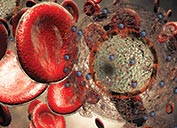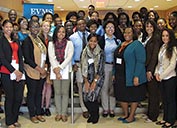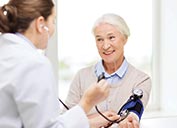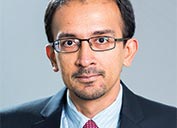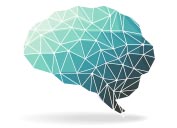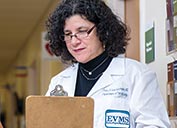New school-wide training tackles unconscious bias
How do you fight bias if you don't even know it's there? The phenomenon known as "unconscious bias" is the focus of a new institution-wide training at EVMS.
Unconscious bias is the act of making judgments based on a personal view of the world. While it isn't necessarily bad, it can have an unintentional effect on decisions, says Mekbib Gemeda, Vice President of Diversity and Inclusion, who is leading the effort to address this.
"You must know you have unconscious bias and understand that it's a natural mechanism of the brain," Mr. Gemeda says. "Then we can begin to mitigate it." To that end, EVMS is training faculty, staff, residents, students and even board members. "We have to understand the challenges and barriers of our own environment."
EVMS Board of Visitors member Derwin Gray, MD, says he's glad the board went through the training, because addressing bias starts at the top. "Health care is designed for the entire population," Dr. Gray says. "We're training our students to serve the community, and that means the entire community."
It's also important to have diversity within workgroups to help minimize unconscious bias. "Bias works against our good intentions," Mr. Gemeda says, adding that "aha" moments are common during the training.
Samuel Lee is a first-year medical student who had such a moment. "I walked into the workshop foolishly assuming that having grown up on three different continents, I had no need for further training in cultural navigation or elimination of personal biases," Mr. Lee says. "I thought my experiences had taught me how to view each person as one with a unique narrative. However, as we were working through a few cases, I was humbled to discover that I was still harboring nuanced prejudices that I didn't know about."
Shannon McCole, MD (Ophthalmology Residency '97), Assistant Professor and Chair of EVMS Ophthalmology, says she, too, was surprised by what she learned.
"Once we understand that unconscious bias exists," Dr. McCole says, "we can better analyze the role that it plays in how we relate to people and the assumptions we make. This training is critical for health-care professionals aiming to deliver more patient-centered and ultimately more effective care."

